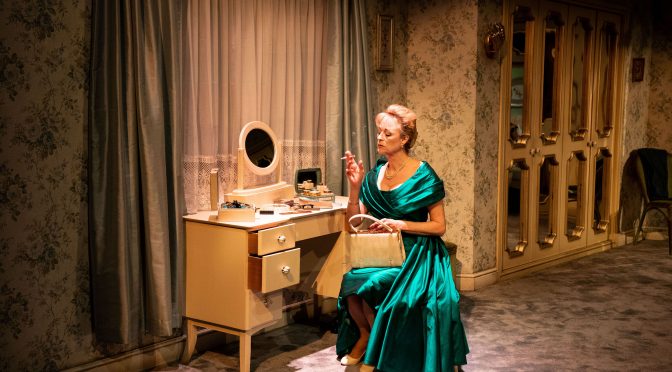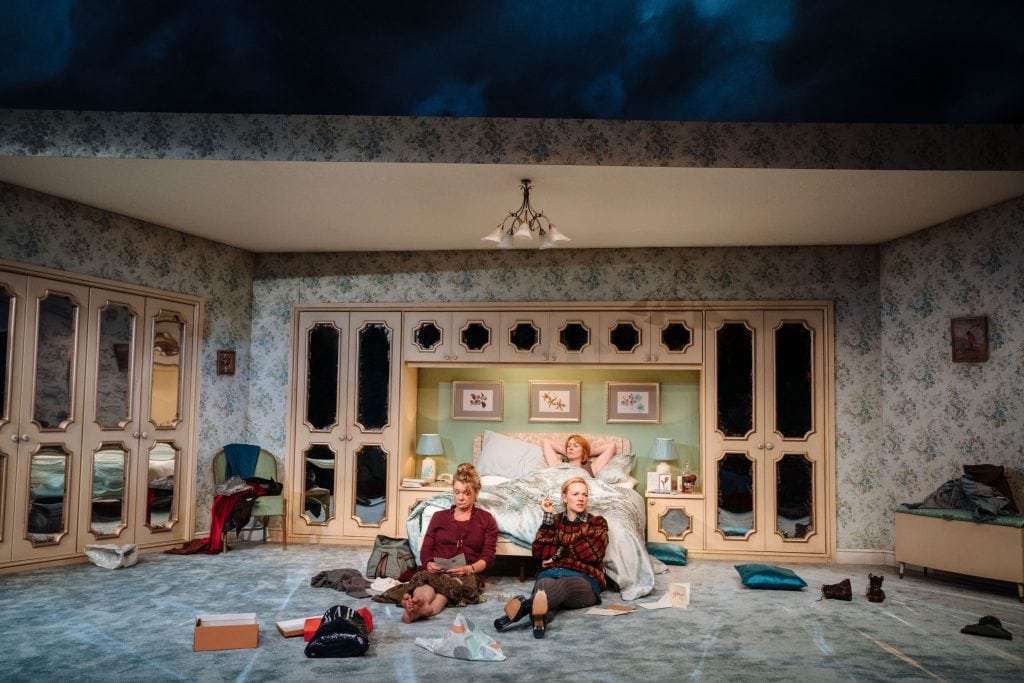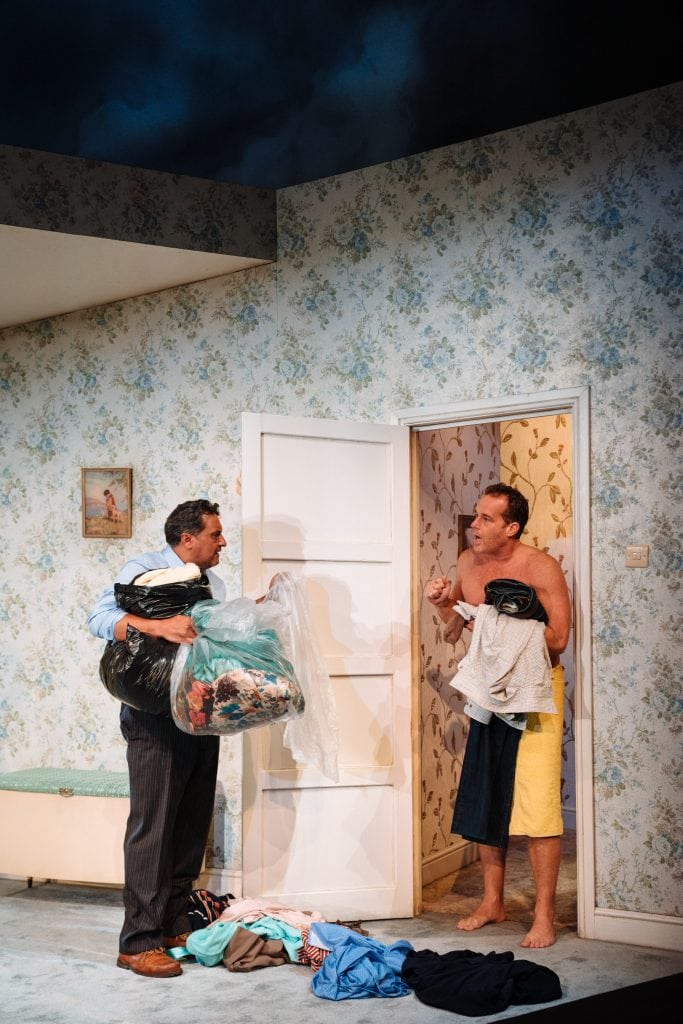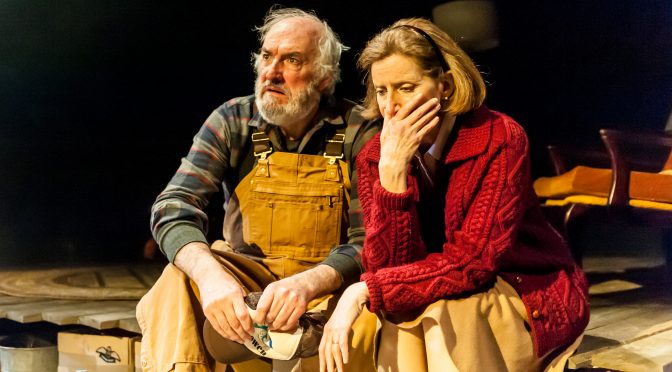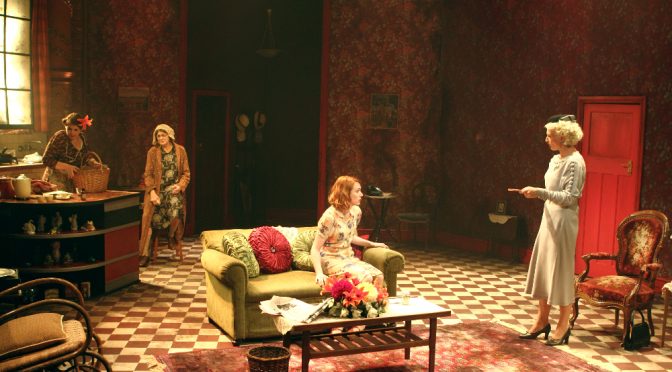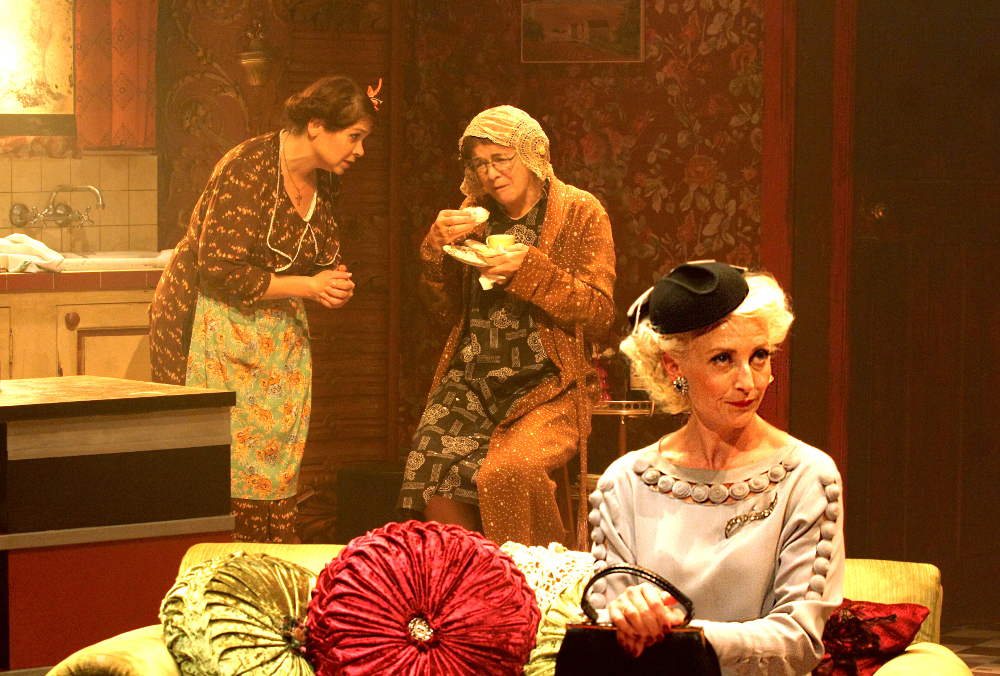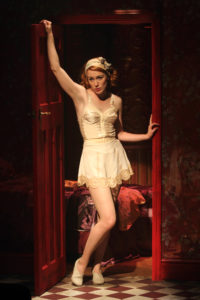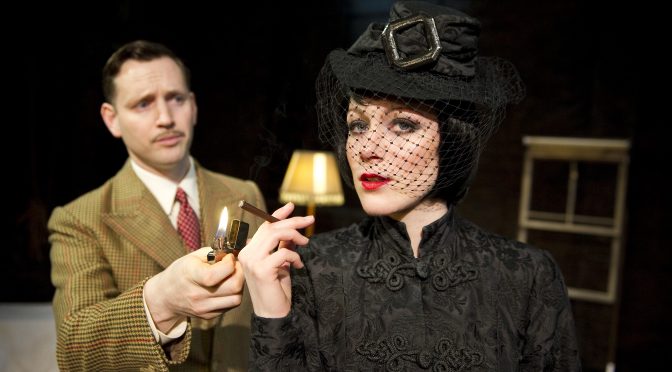Neil Gaiman’s fantasy tale, adapted for the stage by Joel Horwood, is clever. An introduction to some metaphysics as well as the supernatural makes the story as thought-provoking as it’s entertaining. The piece is as much about childhood and parenthood as adventure, which makes it moving emotionally as well as being action-packed. If a little too attentive to its genre (which you either love or hate), The Ocean at the End of the Lane is brought to the stage with great style.
Having a best friend, Lettie, who is some kind of witch proves a mixed blessing for our young hero. A play date results in the unnamed boy’s home being invaded by a monster who usually lives on the fringes of our reality! The creature, who transforms into Ursula (played very capably by Laura Rogers) controls a grieving father and gullible sister. Thankfully, Lettie (who isn’t really young) can magically help out. The plot is diverting enough – but solidly aimed at children.
Gaiman says his story is about memory, which doesn’t come across so much on stage. But having an adult character reminisce about the events of his childhood, and then perform as his own father, adds layers to the characters, which helps both James Bamford and Nicolas Tennant in their roles. Other characters are fun, if sketchy, such as the ‘Sis’ter, played by Grace Hogg-Robinson. But there are too many questions around Lettie’s motivation, skated over with the powerful performance from Nia Towle.
As with previous National Theatre hits for children (War Horse, Coram Boy) the show isn’t scared to be dark, a little gory and sometimes funny – well done for trying on all counts. The gore is good, but the humour is unoriginal and there is too little threat. It’s really director Katy Rudd’s work that makes the show a success. Breathless and excited about adventure and magic, the piece convinces against the odds.
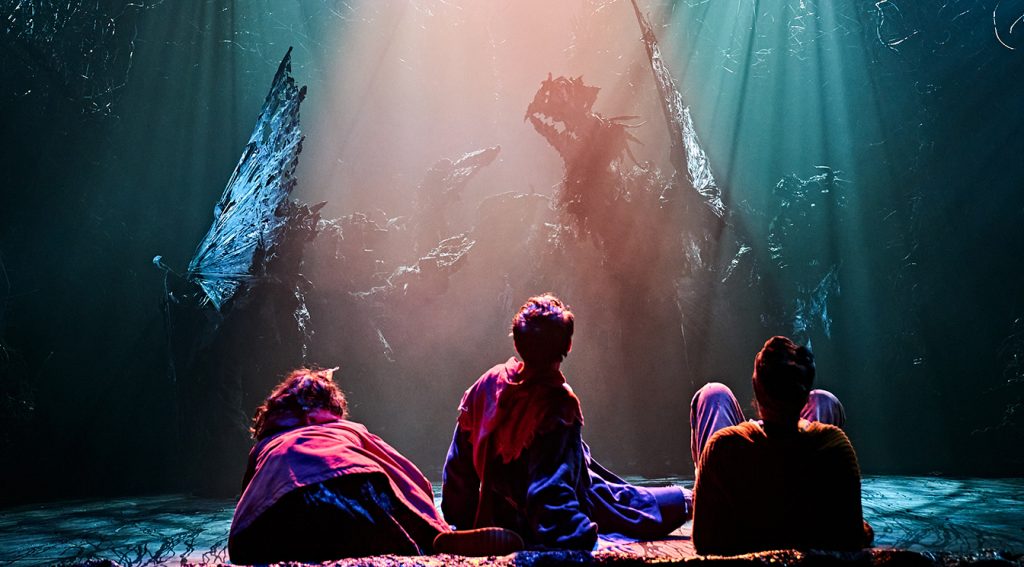
The puppets (credited to Samuel Wyer) are as good as any I’ve seen on stage. Paule Constable has surpassed herself with lighting design. Above all, the soundtrack from Jherek Bischoff is superb – it’s no surprise it’s on sale. And Steven Hoggett’s movement direction is the key, well done (all the more welcome, since the dialogue is poor), with everyone moving props and acting all the while. Rudd has made sure the show eminently theatrical. Of course, fantasy on stage works! Imagination is the key to theatre and the genre – and the production harnesses this with great skill.
Until May 2022
Photo by Manuel Harlan


